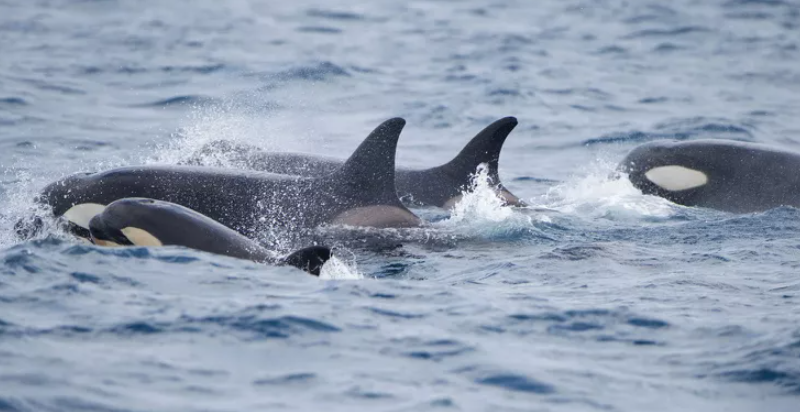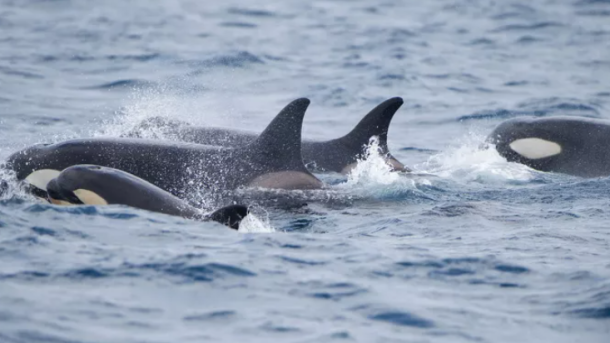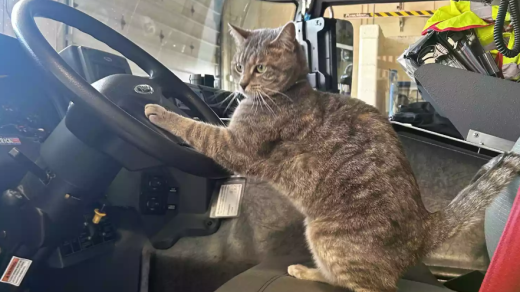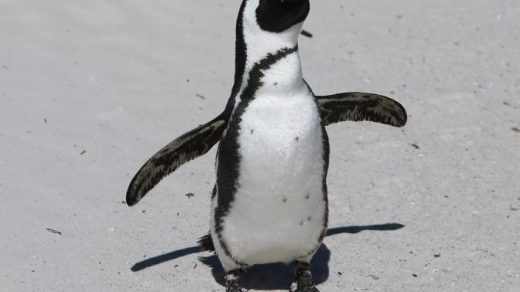The recent sighting of a Southern Resident killer whale calf near British Columbia has given researchers a much-needed boost of optimism for this critically endangered species.
On Sunday, April 6, biologist Mark Malleson spotted J Pod, a well-known group of orcas, moving west past Victoria Harbour. Alongside them was a tiny, newborn calf sticking close to its mother, J40. This marks J40’s first known calf and the fourth birth among the Southern Resident killer whales in the past year—a significant step forward for the struggling population.
According to a Facebook post from the Center for Whale Research, early observations show the baby whale, now identified as J63, appears healthy. “There are no immediate concerns at this time,” the update read. Still, researchers remain cautiously hopeful, noting that the first year is often the most vulnerable for young whales, especially those born to first-time mothers.

Southern Resident killer whale calf vital to survival
The Southern Resident killer whale calf, J63, holds major importance in efforts to conserve the population. Each new birth plays a key role in preserving this unique group of orcas.
The J Pod is part of a culturally and genetically distinct community known as the Southern Residents. These whales live in matrilines—tight-knit family groups centered around elder females—and typically travel in pods that range in size from just a couple to over 30 members.
Experts believe that orcas form pods not only for hunting but also for protection and social bonding. However, despite their complex family systems, these whales have faced decades of threats. The Endangered Species Coalition highlights that more than 50 individuals were lost to marine parks over a 20-year span, reducing the population by roughly 40%.

Continued monitoring and cautious optimism
While the arrival of J63 is heartening, the journey ahead remains uncertain. The Center for Whale Research plans to keep monitoring the calf’s development and well-being in the coming months.
“Every birth matters,” the organization emphasized, adding that updates will be shared through future sightings. With continued support and careful observation, there’s hope that this Southern Resident killer whale calf will thrive and help secure a future for its endangered family.
Source: www.people.com



